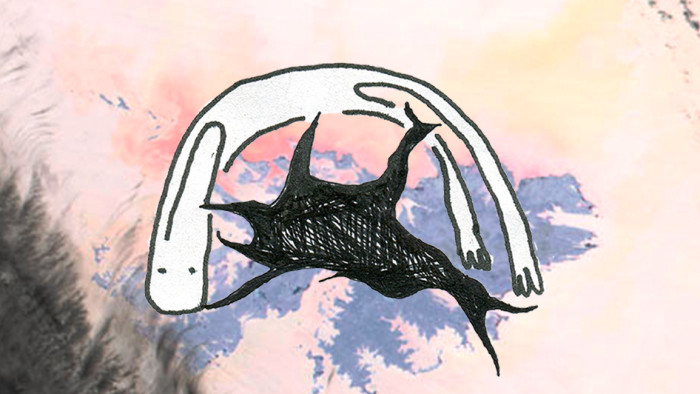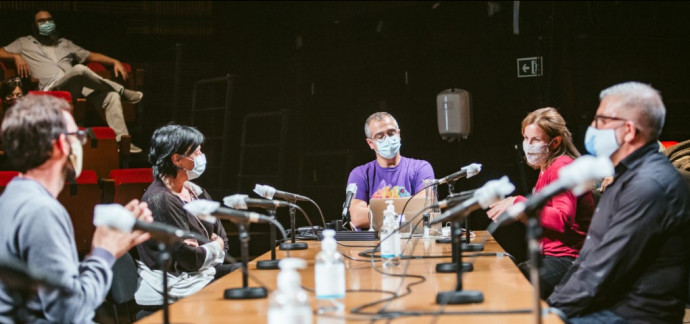ITINERARY. The youngest Biennial
It can easily be argued that all the debates that are addressed in the Biennial of Thought have a special impact on the younger generation. After all, we are talking about the citizens who will have to live in the world we are heading towards. This group of the public, moreover, is aware of this and responds by making up one of the most common types of attendees. A free and open access programme, inclusive, and with themes that radiate the present but, above all, look to the future, seem to be the keys to success. But there is also an effort to design some of the sessions to challenge them directly.
This year BIVAC, a new project led by the CCCB and the cultural producer La Sullivan with the collaboration of sixteen young people from the city, stands out in particular. Conceived as a small festival within the Biennial, made by young people for young people, BIVAC takes the form of four actions or events: three of them on the afternoon of the 13th and one in the form of an installation running throughout the week called Camp. In Outdoor Encounters, five pairs of young creators, thinkers and activists will discuss the idea of refuge, a necessary balm in a world and a present that all too often appears hostile. Correspondence is set within the same framework, but is articulated as a dialogue between the writer Aixa de la Cruz and the filmmaker Clara Roquet. Celebrating an end, late into the night, will live up to its name and proposes a festive colophon with words, music and dance.
The term metaverse may be alien to some age groups, but not to those in their twenties and thirties. Some experts in Desirable metaverses, virtual realities where we want to live, will talk about their potential as alternative environments to analogue reality. Dystopia is another concept that has become popular in recent years, although it is nothing new. And unfortunately, it is often used to describe the present. The fact is that, especially for millennials and zoomers, the world seems to be shaking in a way that does not fit in with many of the optimistic imaginaries inherited from previous generations. Utopia and dystopia, on Sunday the 16th, describes this pendulum-like thinking to which we seem to be heading, from "another world is possible" to nihilism and vice versa, several times a day.
City and Identity, also the last day of the Biennial, will bring us closer to the links we establish with the urban environment in which we live, and will do so through the constructions and appropriations made by the audiovisual, probably the language that most connects with the young imaginary.
We will then have the opportunity to bid farewell to this edition with two sessions that avoid the usual format. We will be able to opt for the humour of +Riurem, with radio and television icons such as Marc Sarrats and Elisenda Pineda; or for a special live edition of Gent de Merda, one of the most successful millennial podcasts in our post-radiophonic ecosystem.
And at +Biennial...
A mixture of theatrical staging and community participation system. This is La taula, an evening at the Teatre Lliure where spectators can sit at the table on the stage and take part in this kind of dramatised debate. This edition focuses on young audiences and reflection on the city of the future and the role that the new generations can play in its construction. An unusual proposal that requires prior registration.
The Feminist Solidarity Day. For them, for us, for all of us is aimed at all ages, but we already know the mobilising enthusiasm of young people. That's why this Saturday 15th in La Model is an ideal date for the new batches of committed citizens to enjoy a festive and vindicating evening.




